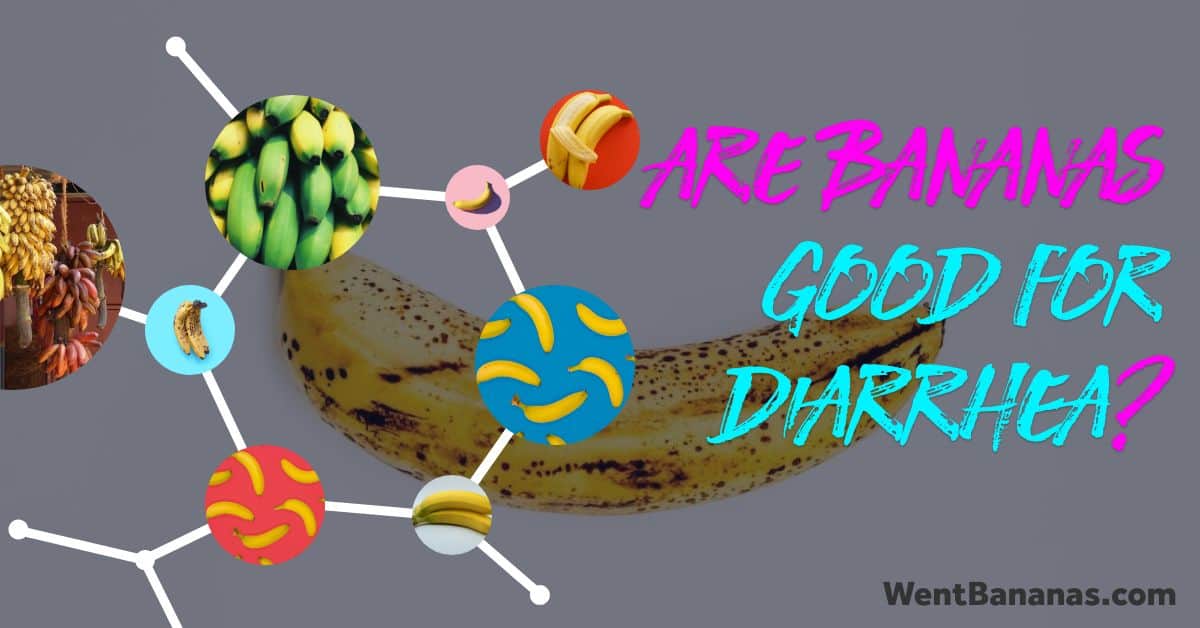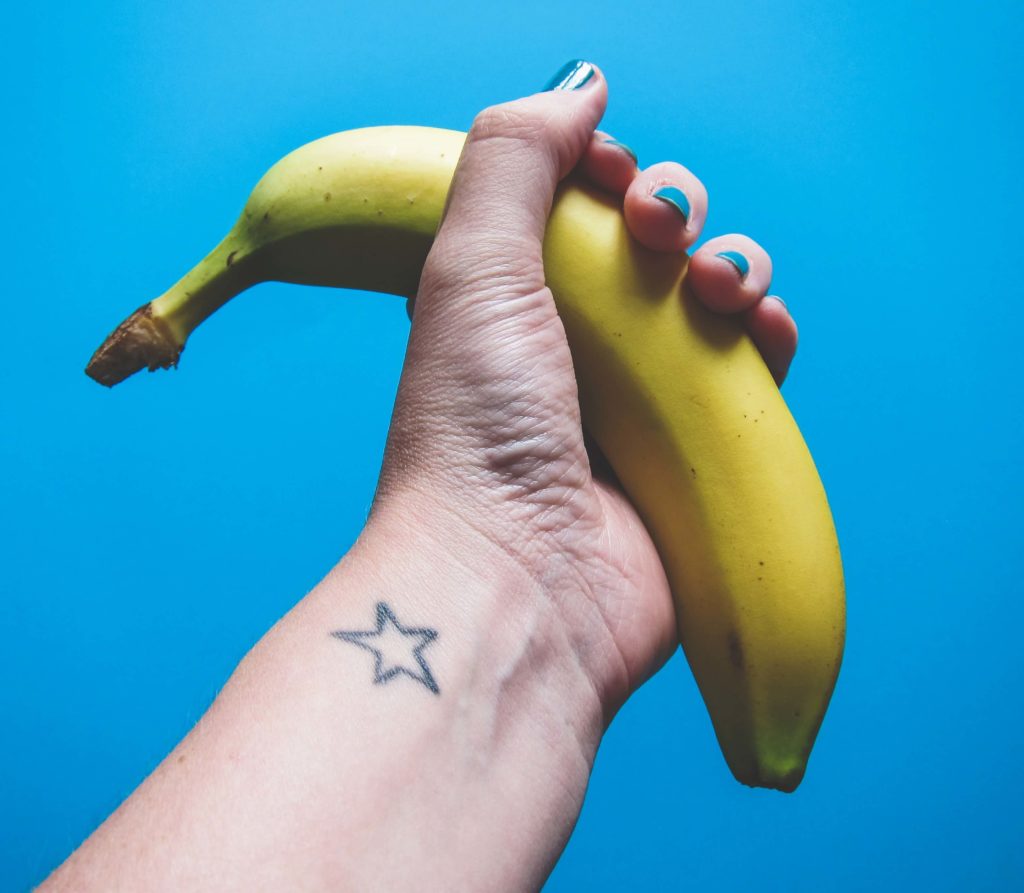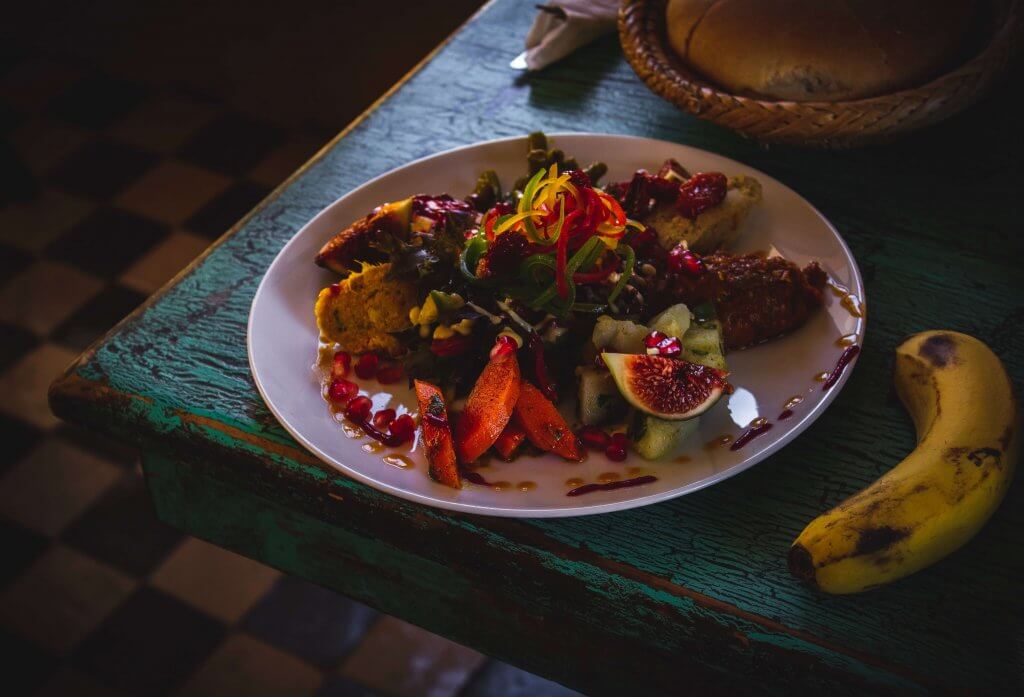Diarrhea is a common and sometimes uncomfortable problem. But did you know that eating bananas could be the perfect solution? This article will look at the potential of this fruit to reduce the symptoms of diarrhea.

We’ll discuss what diarrhea is, how eating bananas can help with diarrhea, the possible benefits of eating bananas for diarrhea, other foods a person may want to eat when dealing with diarrhea to help reduce symptoms, and the risks associated with eating bananas for alleviating symptoms of diarrhea.
If you want to learn more about using bananas to help with diarrhea, keep reading!
What Is Diarrhea?

Diarrhea is an uncomfortable and often inconvenient digestive condition that involves the frequent passing of loose or watery stools. It can be caused by a variety of factors, ranging from dietary choices to infection.
Generally speaking, diarrhea occurs when food moves too quickly through the intestines, resulting in inadequate digestion and absorption of nutrients. In some cases, it may also involve dehydration due to excessive fluid loss from the body as well as possibly electrolyte imbalances if not treated promptly and properly.
Fortunately for those affected by this unpleasant condition, there are several treatments available depending on its underlying cause.
Anti-diarrheal medications can help reduce symptoms while probiotics have been found to restore balance in gut flora which aids with restoring normal bowel movements over time without adverse side effects like constipation or bloating commonly associated with antidiarrheals alone.
Diet modification such as avoiding foods high in fat content is also recommended since these tend to increase intestinal transit leading to more frequent episodes of diarrhea until improved lifestyle habits become routine once again.
How Can Bananas Help with Diarrhea?
Bananas are known to have a natural antidiarrheal effect, making them an ideal food choice for those suffering from diarrhea. Bananas contain pectin, which can help solidify loose stools and provide relief from discomfort caused by the condition.
They also contain electrolytes like potassium that help balance body fluids and restore essential minerals lost during bouts of diarrhea.
Furthermore, bananas are rich in dietary fiber which helps stimulate the growth of beneficial bacteria in the gut while reducing inflammation—both key components to alleviating symptoms associated with this uncomfortable digestive disorder.
Incorporating bananas into your diet when experiencing episodes of diarrhea is a safe and effective way to reduce symptom severity while helping regulate digestion overall.
The Possible Benefits of Eating Bananas for Diarrhea
Bananas have long been known to be a beneficial food for those suffering from diarrhea. Rich in pectin, bananas are an excellent source of soluble fiber that can help bind loose stools and reduce watery bowel movements common with this condition.

In addition, the high potassium content helps replenish lost electrolytes and restore proper hydration levels in the body.
Moreover, thanks to their prebiotic properties, bananas also stimulate the growth of healthy probiotics which aid digestion by breaking down foods more quickly while encouraging regular gut activity – both key components of managing diarrhea symptoms.
Finally, some studies suggest that consuming a banana before or after meals may slow rapid gastric emptying – another factor associated with this digestive disorder – further supporting the banana’s potential therapeutic value for sufferers seeking relief from symptoms caused by diarrheal conditions.
Other Foods a Person May Want to Eat When Dealing with Diarrhea to Help Reduce Symptoms.
Dealing with diarrhea can be a difficult and uncomfortable experience. To help reduce symptoms, it may be beneficial to consume foods that are nutritious while also being easy to digest.
In addition to the traditional bland diet of starchy foods like white rice, oatmeal, and plain crackers, there are other nutritional options available. For instance, probiotic-rich yogurt is an excellent source of good bacteria that can help combat gastrointestinal inflammation often associated with diarrhea.
Additionally, plant-based soups or broths made from root vegetables such as carrots or sweet potatoes provide essential nutrients without taxing digestion too much.

« Should You Eat a Banana for Breakfast?
Substitutes for Banana in Your Favorite Recipes »
Finally, lactose-free milk products like almond milk or goat’s cheese offer both protein and calcium in a form easier for sensitive stomachs than dairy products containing lactose sugar molecules could manage comfortably.
The Risks Associated with Eating Bananas for Alleviating Symptoms of Diarrhea
When it comes to alleviating the symptoms of diarrhea, eating bananas may seem like a safe and effective solution.
However, this remedy can come with numerous potential risks. As one of the most ubiquitous fruits in many regions around the world, consuming unripe or overly ripe bananas could lead to digestive upset due to their indigestible fibers and starches.
Eating too many bananas can also cause constipation as well as an imbalance in electrolytes which leads to dehydration if not monitored properly.
Furthermore, those suffering from irritable bowel syndrome should be wary when using this natural remedy because some individuals experience adverse effects such as bloating or cramping after consuming excessive amounts of fiber-rich foods like bananas.
Therefore, it is important for sufferers of diarrhea – especially IBS patients – to proceed with caution when considering banana consumption for symptom relief purposes so that they don’t risk aggravating existing conditions instead of relieving them altogether.
Final Conclusion
After reviewing the benefits and risks of eating bananas to alleviate symptoms of diarrhea, we can conclude that consuming this fruit as part of a balanced diet may be helpful for reducing symptoms.
However, it is important to remember other foods such as yogurt or toast are often better options when dealing with diarrhea. If you require further guidance on managing the effects of diarrhea and nutrition advice consult your healthcare provider.










